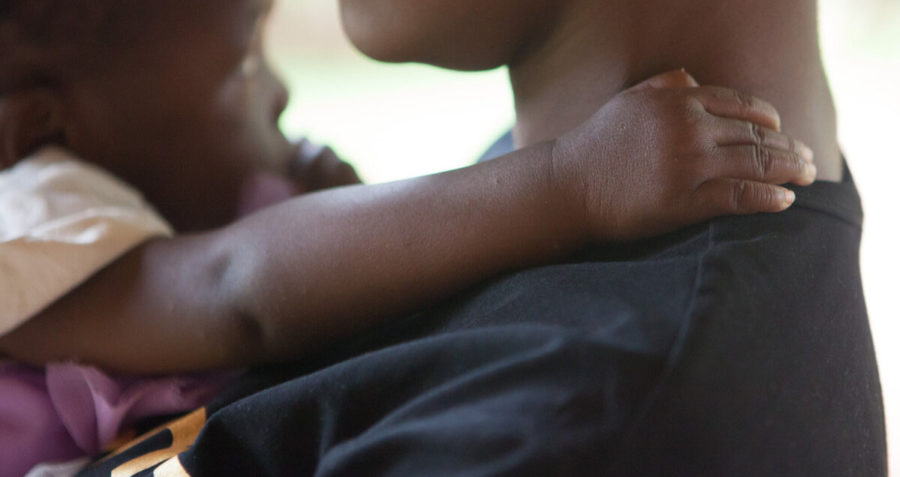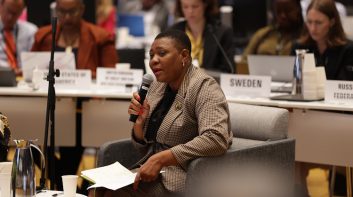From suicidal thoughts to speaking up for young mums with HIV
 © Frontline AIDS/Gemma Taylor/2017
© Frontline AIDS/Gemma Taylor/2017
For Vengai, a young single mum living with HIV, the birth of her daughter proved a major turning point and now she’s changing the lives of others as a mentor with the READY to Lead programme.
I work at the health facility as a READY to Lead mentor. Some of my mentees are the same as me because I am a young mother. We discuss disclosure, our husbands and our boyfriends.
I find my support from my mentees and my mentors. Most people, they don’t have information about HIV. So if you’re HIV positive, in the community they use the language that you’ve got AIDS. My family rejected me when my mum passed away because of my HIV status. After she passed away, I got into a relationship and then my husband left me at six months pregnant.
Finding a reason to live
I will not lie to you, I wanted to commit suicide most of the time and I decided to stop my [antiretroviral] medication. I decided not to take it at all, I wanted to die with my baby.
When I went to the clinic, I got counselling but I had already made the decision in my head. I pretended that I was listening, but the only thing I wanted was to die – not to take poison or go to a railway station to die fast but to remove my medication.
To my surprise though, I was gaining weight; I was healthy. At the clinic they thought that I was four months pregnant but in a few weeks I was in labour. With my child the joy came, and the thoughts of taking my life washed away. I said to myself look, you want to keep that child. If she says to me mum why are you crying, I will say it is tears of joy my dear. If I look at her, it reminds me why I should not be dying now that there are two of us in the house.
The challenges of disclosure
In Zimbabwe, if I’m pregnant at 16, the nurses or the older ones in the facility judge us. Why do you do that? You don’t know even how I got pregnant, and I want to explain to you but you just start on me so I will just leave the clinic. That’s why some of us don’t have any information or don’t have someone to tell who we trust.
It’s not easy telling your partner or boyfriend or husband about your HIV status, it’s a journey. You know, if you love someone a lot, to tell him or her that you’re HIV positive you might lose them. Some of us just got married without telling them, and then if it’s hard to take medication [for fear of being discovered], maybe we stop the meds.
Or maybe it is the husband who gives us HIV, but it becomes tense if you want to discuss safe sex. They just say ‘I paid your lobola [bride price], many cows went to your family. So I paid for you, you are mine.’
Change maker
There are many challenges for young mums and young girls, like poverty. They’ll think I can do sex work and get money. If a customer comes and he has $100, he will say he wants unprotected sex, but maybe he wants to infect them. If that person gets pregnant and has no information, they’ll just have a home delivery. They won’t even go to the clinic to be checked.
I became a mentor to change the life of the girls who are living in the community and also for them to see that I am a young woman able to stand on my own. Even if I face challenges like GBV [gender-based violence] or concerns about my age in the clinic, I will stand and speak up.
Before, I was alone. But the READY to Lead team, motivated me so that I can talk about my story with confidence, without fear. If I tell my story, someone may hear it and become better in their own world. I want to change my community.
About our programme
Vengai has been supported by READY to Lead which is part of the READY portfolio of programmes designed to build Resilient and Empowered Adolescents and Young people (READY). READY to Lead is strengthening the leadership and advocacy skills of 100 young women and adolescent girls in Zimbabwe who in turn become mentors and role models to other young women.
Further Reading
Tags
Adolescent girls and young womenGender equalityHIV preventionPeople who are marginalisedREADY




